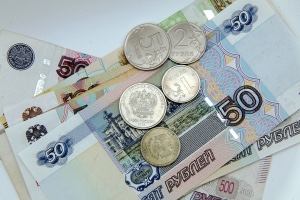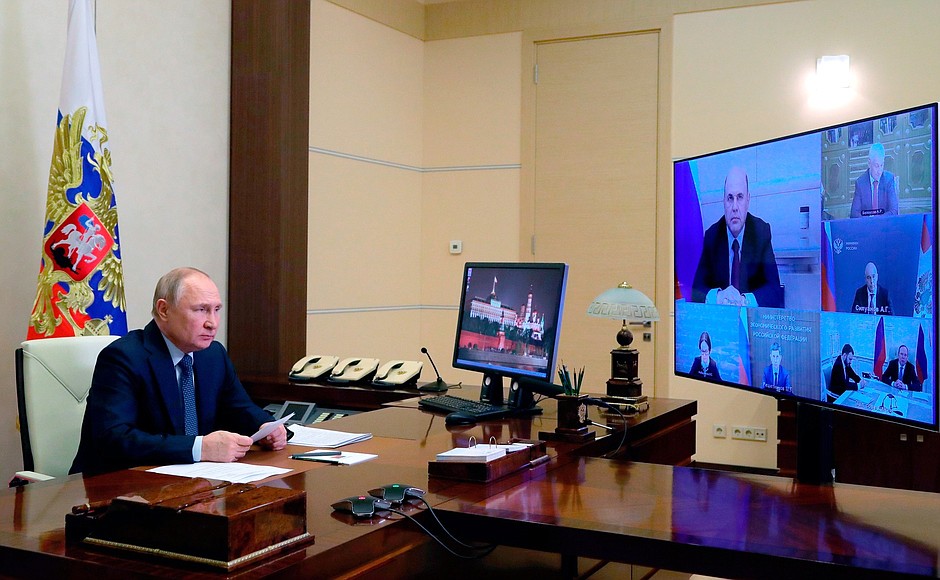
Washington DC/Moscow: The United States imposed more sanctions, this time also on Russian Duma members, on April 20, 2022 (local time). The sanctions were announced soon after Moscow successfully tested its intercontinental ballistic missile (ICBM) Sarmat and President Vladimir Putin termed it a “wake-up call for those who are trying to threaten our country in the frenzy of rabid, aggressive rhetoric”.
The latest US action makes family members of those who fall under the policy ineligible for visas, besides the Duma (Russian Parliament) members “who have been involved in repressing independent media”. The order mentions that action to impose visa restrictions on 587 Russian individuals was announced on March 15, 2022, and applied to Russian government officials involved in “suppressing dissent” in Russia and abroad.
“The world has witnessed the horrors of this war in the images from the Ukrainian towns of Bucha, Irpin, and Hostomel, and in Ukrainian towns and cities still occupied or under siege, such as Mariupol. As a result, the United States is taking further actions to promote accountability for human rights abuses and violations…,” a statement by Antony J. Blinken, Secretary of State, said on April 20, 2022 (local time).
Today’s US action also included ten purported “authorities” of the “so-called” Donetsk People’s Republic and Luhansk People’s Republic who were further reported to have been involved in human rights abuses at prison facilities and places of unofficial detention in Russia-controlled areas of the Donbas since 2014.
Moreover, the US also imposed visa restrictions on 17 individuals, who it claimed, were responsible for undermining democracy in Belarus, including Belarusian nationals involved in the intimidation, harassment, and repression of strikers supporting the pro-democracy movement and the expulsion of students for participating in peaceful pro-democracy protests. Specific individuals include officials from state-owned factories and universities.
Additionally, the US Department of the Treasury’s Office of Foreign Assets Control (OFAC) designated entities and individuals involved in “attempting to evade sanctions” imposed by the United States and its international partners on Russia. OFAC designated Russian commercial bank Transkapitalbank and a global network of more than 40 individuals and entities led by U.S.-designated Russian oligarch Konstantin Malofeyev, including organizations “whose primary mission is to facilitate sanctions evasion for Russian entities”. OFAC also designated companies operating in Russia’s virtual currency mining industry, reportedly the third-largest in the world.
The US Department of State further designated 16 Bank Otkritie Board Members “for being or having been a leader, official, senior executive officer, or member of the board of directors, or members of an entity” whose property and interests in property were blocked.
“We will continue to target those who take part in or facilitate sanctions evasion for sanctioned Russian entities, as they are complicit in President Putin’s brutal war. We will ensure that the sanctions we have imposed in close coordination with our international partners degrade the Kremlin’s ability to project power and fund its war of aggression,” Blinken stated.
The question does arise as to what extent such sanctions are impacting Russia? The war in Ukraine has already entered the 57th day today and going by the claims of Ukrainian President Volodymyr Zelenskyy, Russian occupiers are unrelenting. Zelenskyy said today that Russian soldiers had destroyed up to 98% of the whole infrastructure in Mariupol, in the Donetsk region.

Russia seems unruffled by the sanctions, at a time when its economy showed a record level of the budget surplus in the first quarter of this year. Its current surplus stands at about 1.1 trillion rubles, and the total surplus in the regions is about 0.9 trillion rubles.
Concerning the impact on the Russian oil and gas sector, Russia identifies the disruption of export logistics here as the most urgent problem but hopes that the absence of any reasonable alternative to Russian gas in Europe, would delay its replacement. The absence of uncontracted volumes of gas on the global market, and the fact that deliveries from other countries to Europe, primarily from the United States, will cost consumers several times more will hurt people’s living standards and the competitiveness of the European economy, making Putin confident of overcoming the present crisis scenario.
However, Russia is not taking any chances and exploring the possibilities of diversifying exports to the South and the East’s rapidly growing markets to preempt any crisis if energy supplies to the West go down.
“To achieve this, we must determine the key infrastructure facilities and start their construction in the near future,” Putin directed his officers on April 14, 2022.
Putin does acknowledge the setbacks in payments for Russian energy exports as banks from “unfriendly countries” were delaying the transfer of funds. Russia plans to convert payments for energy resources into national currencies and gradually depart from dollars and euros. “In general, we intend to drastically increase the share of settlements in national currencies in our foreign trade system. Important steps are already being taken in this area, and the key task is to prepare our currency market for this transition and enable customers to exchange any foreign currency for the required amount of Russian rubles,” he stated.
Significantly, on April 18, 2022, in course of a review meeting on the current economic situation in the country, Putin, while referring to the sanctions, had claimed that Russia has been able to withstand this “unprecedented pressure”.
“The situation is getting back to normal with the ruble recovering to where it was in the first half of February, which is attributable to a robust trade surplus, which is an objective reality. The current account surplus exceeded $58 billion in the first quarter, setting a historical high. Foreign cash is returning to the banking sector and household deposits are growing,” he pointed out. As for the consumer market, he noted that retail demand had stabilised after a brief period of panic buying, “which does happen in situations like this”. He further said that the retail chains were restocking their supplies and that the inflation rate was stabilising.
Though Putin acknowledged during the meeting that consumer prices grew considerably in Russia over the past six weeks, by 9.4 per cent, which means that year-end inflation as of April 8 was 17.5 per cent, he claimed that still contrary to the expectations of the US-led West, the sanctions failed to sow panic in the markets and bring about a collapse in the banking system. There were no major shortages of goods in shops either, he noted.
“We can already say in all confidence that this policy has failed in Russia. The strategy of unleashing an economic blitzkrieg has been ineffective. Moreover, the sanctions affected those who initiated them. I am referring to higher inflation and unemployment and the worsening economic outlook for the United States and European countries, as well as the declining living standards of Europeans and the depreciation of their savings,” Putin said at the meeting that was attended by his Prime Minister Mikhail Msishustin, Chief of Staff of the Presidential Executive Office Anton Vaino, First Deputy Prime Minister Andrei Belousov, Presidential Aide Maxim Oreshkin, Minister of Economic Development Maxim Reshetnikov, Minister of Finance Anton Siluanov, and Central Bank Governor Elvira Nabiullina.
– global bihari bureau






👌👌